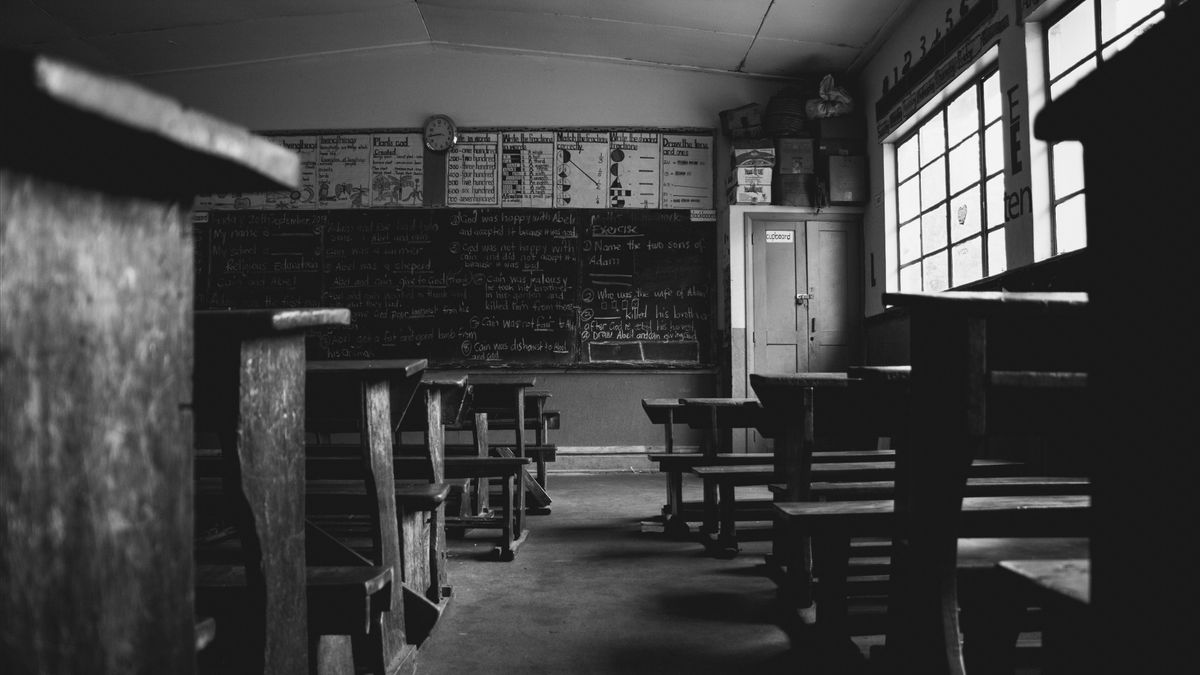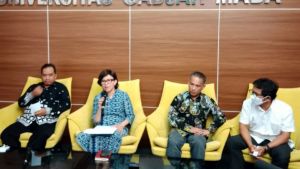JAKARTA - Violence cases in the world of education have occurred again. Now, three high school students (SMA) beat a teacher until they are black and blue.
They are students of class XII of a high school in Fatuleu Barat Subdistrict, Kupang Regency, East Nusa Tenggara (NTT), with the initials CY, YC, and OB.
The pekara that occurred on Tuesday, March 3, started when the teacher with the initials YF became the exam supervisor. Before starting the exam, he checked the attendance list. However, there is one student who hasn't filled it in yet. Then, the teacher questions all the students in front of the class.
However, not a single student answered. Then, a student stated that all attendance lists should have been filled. Feeling offended by the student's attitude, YF then approached him.
As a teacher, YF provides advice. However, another student responded to this. So, he immediately approached him and slapped the student's head.
Not receiving it, the student replied by hitting YF to his knees. In fact, two other students also trampled the teacher.
As a result of the persecution, YF suffered serious injuries, to the back of the head, back, hands and shoulders. He had to undergo intensive care. Then, the case was reported to the police
Based on the report, the three students were arrested and charged under Article 170 of the Criminal Code concerning maltreatment. However, the police first put forward the juvenile criminal justice system in handling these cases on the grounds that they are still 17 years old and have a future.
With the re-emergence of acts of violence that tarnished the world of education, Satriwan Salim, Deputy Secretary General of the Federation of Indonesian Teachers' Unions (FSGI), said that there were three main factors that influenced it. First, about the lack of parental participation in educating children. Second, related to the use of devices or smart phones, and the third is about regulation.
For the minimal role of parents, he said, currently the supervision of students is completely left to the school. In fact, the interaction of teaching or supervisory staff only lasts a few hours.
Parents should have a role in supervising children. So, growth and development and education can be monitored properly.
"Parents must be active in educating, any information arrives. Parents must have a lot of participation in the school. Do not leave it entirely to the school," Satriwan said to VOI, Thursday, March 5.
Then, the second factor is about supervision in using the device. The elements of violence that are often imitated or practiced by students mostly come from games on their smart phones.
Schools have indeed limited the use of gadgets. However, apart from school, it is the role of parents who have to supervise their children.
"The second control is from the parents, classic but neglected. Supervision using gadgets. In my opinion, violence is the influence of the internet or games. Addiction to games is an element of violence. This is very important. The school is very limiting. But the interaction with parents with children is lacking. So, children become aggressive, "said Satriwan.
Finally, about regulation. The government has promoted a mental revolution to build better human resources. It's just that the implementation of the school as the spearhead, making the younger generation develop is still considered very minimal.
There are still many schools that seem to ignore it. However, when they were in the spotlight, they competed to implement the regulations established by the Ministry of Education and Culture (Mendikbud). Thus, the results obtained did not seem to live up to expectations.
"I see that the implementation of schools is very lacking and when there are many new cases there are many cases. The mental revolution has failed, right now we want to focus on human resource development, but it is the opposite because of the lack of implementation from schools," he said.
The English, Chinese, Japanese, Arabic, and French versions are automatically generated by the AI. So there may still be inaccuracies in translating, please always see Indonesian as our main language. (system supported by DigitalSiber.id)












